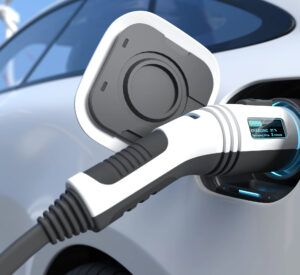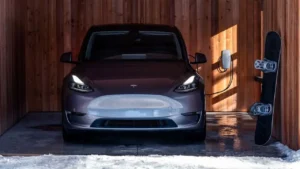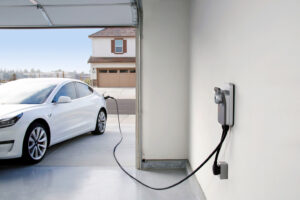As electric vehicles (EVs) continue to gain popularity, many homeowners are looking to install car chargers in their homes. The installation cost varies based on several factors, and understanding these can help you plan your budget more effectively. Here’s what you need to know about electric car charger installation costs, particularly in the Pacific Northwest.
Typical Cost to Install an Electric Car Charger
The cost to have a licensed electrician professionally install an electric car charger at home is typically around $2500 (including labor, materials, and the charging station itself). This price varies based on the type of level 2 charger you get, as well as specific site conditions. We’ll get into the ways that this price fluctuates in the next section.
A level 2 charger is the most common choice for homeowners to get installed. For average fully electric vehicles, a level 2 charging station will charge the vehicle overnight (or within 4-10 hours). The longer the battery range, the longer it will take to charge.
Level 1 chargers, which plug into a regular 120-volt outlet, are much cheaper but charge much more slowly. This is the type of charger that typically comes with the purchase of an electric car. When you first get your car, you would use this charger in your 120 volt outlet to charge the car.
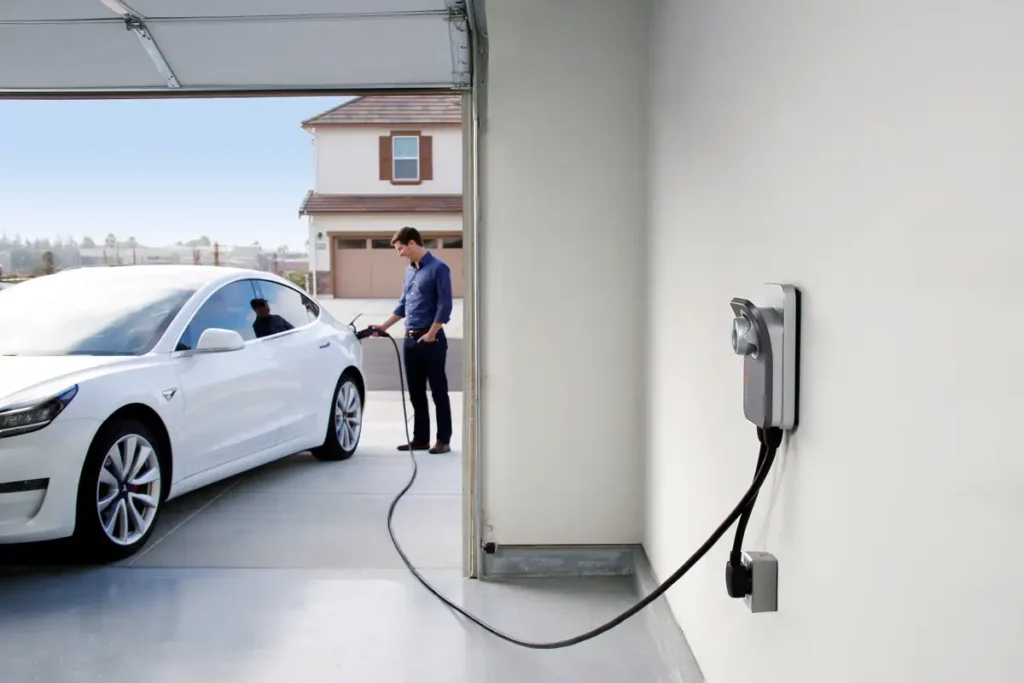
What Affects Car Charger Installation Cost?
Several factors influence the overall cost of installing an electric car charging station at home. Here’s a breakdown of the key pricing considerations:
Charger Type
Quick overview of the 3 main charger types:
- Level 1 Chargers are the simplest and cheapest option, as they require only a standard 120-volt outlet. These are often provided free with the purchase of an EV, but their slow charging speed makes them less practical for daily use. It can take a few days to fully charge an average electric vehicle.
- Level 2 Chargers require a 240-volt outlet, offering faster charging speeds. This charger type is more common for home installations and usually costs $1,200 and $2,200 for labor and materials, plus $400-$800 for the charging station itself. Many homeowners who drive EVs find this cost well worth it, as it saves money in the long run and saves a lot of time spent in public parking lots using public charging stations.
- Level 3 Chargers are rarely installed in homes due to their high cost and infrastructure requirements. These are the public charging stations you can use while shopping, at a hotel, or during a road trip. They vary from 50 kW to 350 kw; those on the higher end of this range are also known as “fast chargers.” While currently each charging session costs less than a tank of gas, it’s still significantly more affordable to charge at home than it is to use these public stations.
Connection Type
- Plugged-in level 2 chargers require a 240-volt outlet and are portable, making them more flexible and easier to replace. Installation is minimal, since no hardwiring is required. However, if you don’t already have a 240-volt outlet accessible, you do need a licensed electrician to install one for you. If the 240-volt outlet can be installed with your current electrical panel, installation costs between $250 to $800. It’s worth noting that plugged-in level 2 chargers require a GFCI breaker per code, which can potentially cause nuisance tripping, therefore making a hardwired connection a more dependable way to go.
- Hardwired level 2 chargers are permanently installed into your home’s electrical system, with installation costing between $850 to $1,800. Like we mentioned, this is the method that we recommend for installing an EV charger. Hardwired chargers are more secure and can be installed outside with weatherproofing. This assumes that your electrical panel can handle this increase in load.
Electrical Upgrades
If your home requires electrical upgrades, such as adding a subpanel or upgrading the main electrical panel, the cost increases significantly. These upgrades would add $650 to $2,000 to your overall bill.
Installation Location (Garage vs Outdoors)
Installing the charger inside a garage is generally cheaper, ranging from $800 to $1,500. Outdoor installations, which require weatherproofing, can cost anywhere from $800 to $2,500, depending on the complexity.
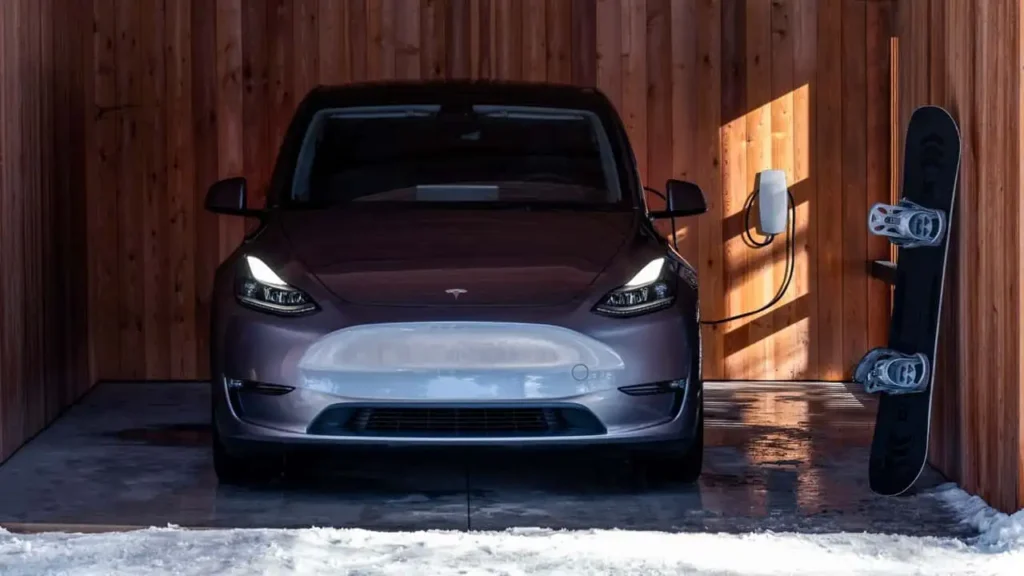
Charger Brand
Whether you’re installing a Tesla connector (charger) or a universal EV charger, the price isn’t going to change significantly for the charger itself. Tesla connectors are $450 while a universal brand such as Chargepoint or Juicebox averages $600.
Permits and Inspection Fees
The local permits and inspection costs vary depending on your specific location. Each city and/or county in Oregon and Washington has different rates. Fortunately, our Prairie Electric residential electricians are well-versed in the entire process and include these specific fees on your quote. It makes the entire process much more straightforward for homeowners. Permit and inspection fees together range from $50 to $300, depending on your location.
Rebates and Tax Incentives
In many areas, including in Oregon and Washington, there are rebates and tax credits available that can reduce installation costs. Some utility companies offer rebates up to $1,000 for installing a qualified EV charger, so be sure to check local programs.
For more detailed information or to schedule a consultation with Prairie Electric for your EV charger installation, visit Prairie Electric’s EV Charger Installation Page.
What About Commercial EV Charging Stations?
We also design-build charging stations and infrastructure for commercial purposes. Whether you’re building a new facility or want to offer charging stations for your employees, we can help. Prairie Electric’s commercial and industrial electricians have the experience to deliver exactly what you want.
